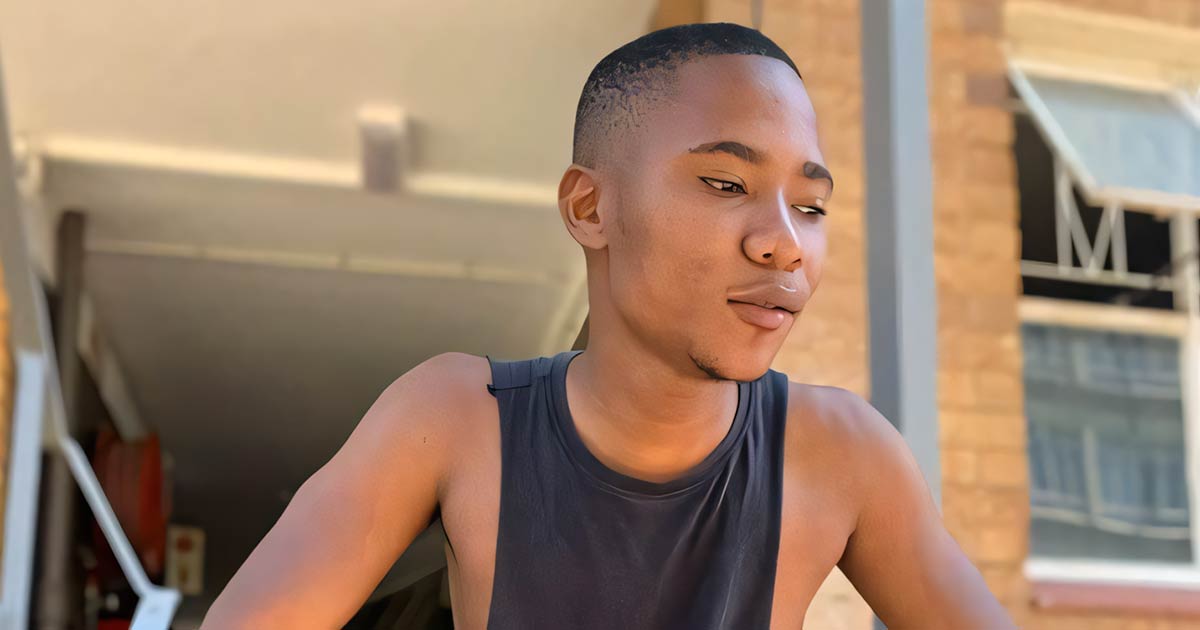Honor Mhlaba Murder Case Highlights IPV in LGBTIQ+ Community

Honor Mhlaba was murdered in June, allegedly by his partner
Intimate partner violence (IPV) within the LGBTIQ+ community is rarely discussed, but the tragic murder of a young Pretoria man has again brought the issue into sharp focus.
Honour Mhlaba, who identified as gay, lost his life on 4 June 2024, allegedly at the hands of his boyfriend during a heated argument. Authorities claim the accused pushed Mhlaba to his death from the seventh floor of a building on Bosman Street, Pretoria.
The Pretoria Magistrates’ Court is hearing the case, which LGBTIQ+ rights group Access Chapter 2 (AC2) is closely monitoring.
“Intimate Partner Violence is a significant issue within the LGBTIQ+ community in South Africa, though it may often be underreported or overlooked,” says Clement Mampane, spokesperson for AC2.
Mampane highlights that IPV in same-sex relationships “is not often as visible as in heterosexual relationships, but it affects individuals across the spectrum of sexual orientations and gender identities.”
Research and the Reality of LGBTIQ+ IPV
While local studies on LGBTIQ+ IPV are limited, some international research suggests that IPV rates among same-sex couples may exceed those of heterosexual couples, but the figures can vary dramatically.
A 2020 study of men who have sex with men in Namibia and KwaZulu-Natal found that 7.3% had experienced IPV from a recent sexual partner. Meanwhile, a 2024 study revealed that nearly 16% of South African women in same-sex relationships reported IPV.
The phenomenon of LGBTIQ+ IPV briefly made national headlines in 2021 when Mohale Motaung accused his high-profile celebrity husband, Somizi Mhlongo, of physical abuse. Mhlongo denied the allegations, and the issue soon faded from public attention.
Same-sex couples often face unique stressors, such as discrimination, stigma, and marginalisation—collectively referred to as “minority stress.” These pressures can exacerbate IPV and deter victims from seeking help.
Fear of disclosing their sexuality and facing secondary victimisation from the police can lead victims to avoid reporting incidents.
Societal stereotypes about gender roles often also minimise the perceived seriousness of IPV in male same-sex relationships, while abuse in female same-sex relationships may be dismissed because it does not involve a male perpetrator.
Addressing IPV in the LGBTQ+ Community
Mampane stresses the need for increased awareness and education about IPV within the LGBTIQ+ community, including tailored programmes that normalise discussions of IPV in LGBTIQ+ spaces.
He emphasises the importance of improving legal protections and access to justice for survivors while addressing discrimination in the criminal justice system.
Mampane further encourages the media to better represent LGBTIQ+ relationships and IPV dynamics, amplifying survivors’ stories to break the silence and stigma surrounding the issue.
Delays in Justice for Honor Mhlaba
In Mhlaba’s murder case, AC2 expressed concern over recent delays. The court postponed proceedings to 30 January 2025, citing difficulties in collecting evidence.
The organisation warned that the postponement has allowed the defence to request either the removal of the case from the roll or the granting of bail to the accused.
“These developments delay justice for Honor and risk setting a dangerous precedent for cases involving violence against members of the LGBTIQ+ community,” said AC2 in a statement.
The group called on the justice system to act with urgency and transparency, ensuring swift and decisive legal action.
“Justice must not only honour Honor’s memory but also reaffirm the commitment to protecting the rights and dignity of the LGBTIQ+ community,” AC2 said.
Leave a Reply